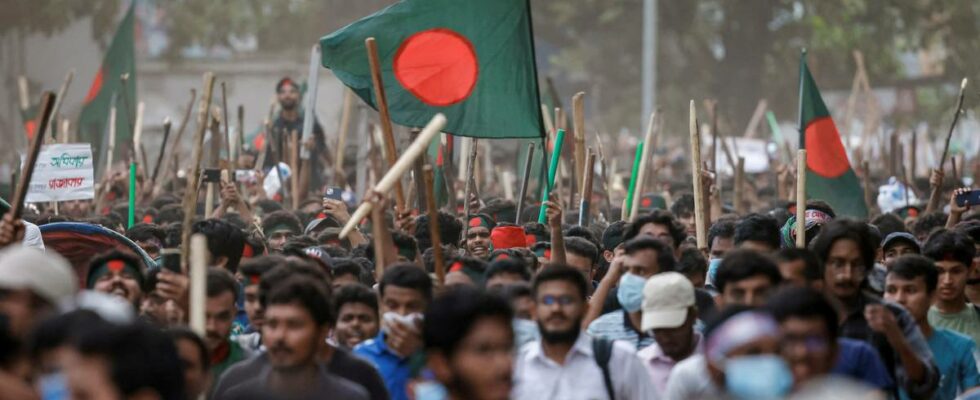It was late on Tuesday evening that the authorities decided that all higher education institutions – universities, colleges and high schools – should be closed. Students and pupils were told to leave the areas, writes the Reuters news agency. The closure comes after weeks of large protests in Bangladesh. The protesters are demanding a change in the quota system where one in three public posts is reserved for family members of people who fought in the Bangladeshi liberation war of 1971. On Tuesday, the protests turned deadly. Six people are said to have lost their lives in the collision. Three were students, the police said. Condemns the violence – We ask the Bangladesh government to immediately guarantee the safety of all peaceful demonstrators and proper treatment of those who have been injured, writes Amnesty International on X. The human rights organization adds that they condemn attacks on the student demonstrators. Several hundred people are said to have been injured in clashes. On Tuesday, students who are critical of the quota system, known as the “anti-quota protesters”, clashed with those who support the ruling Awami League party. The police intervened with rubber bullets and tear gas. Protesters clashed with supporters of the ruling Awami League party in Dhaka on Tuesday. Photo: MUNIR UZ ZAMAN / AFP The government believes that the student demonstrators are responsible for the violence. They claim that the opposition’s student wings have “infiltrated the anti-quota movement”. – They are the ones who started the violence, said Justice Minister Anisul Huq to the BBC. On Tuesday, the offices of the opposition party Bangladesh Nationalist Party (BNP) in the capital Dhaka were raided. “Landssvikere” Markings have been announced on Wednesday where opponents of the quota system will carry coffins to honor those killed. The quota system that the protesters are protesting against was removed in 2018. But in June it was reintroduced. Last week, however, it was put on hold by the country’s highest court. Nevertheless, the protests have continued in full force. Several thousand people have participated in the protests. On Thursday 11 July there were clashes with the security forces in Dhaka. Photo: MUNIR UZ ZAMAN / AFP The critics claim that the scheme gives an undeserved advantage to the children of the government’s supporters. A comment from Prime Minister Sheikh Hasina has also angered some. She is said to have referred to those who protest against the quota system as “razakar”. The term means traitor and is used in Bangladesh for people who collaborated with the Pakistani army during the liberation war in 1971. The war lasted eight months. It ended with Bangladesh, formerly known as East Pakistan, becoming an independent state. It was after the creation of India, which lies between Bangladesh and Pakistan. The Pakistani army has been accused of committing genocide against Bangladeshis during the war. It is unclear how many civilians died as the war raged. Estimates vary from 500,000 to over 3 million, according to an article in the research magazine The Smithsonian, which is published by the US National Museum. Interested in foreign affairs? Listen to the foreign affairs editor’s podcast: Published 17.07.2024, at 09.44
ttn-69
Deadly protests in Bangladesh – all universities close – news Urix – Foreign news and documentaries

